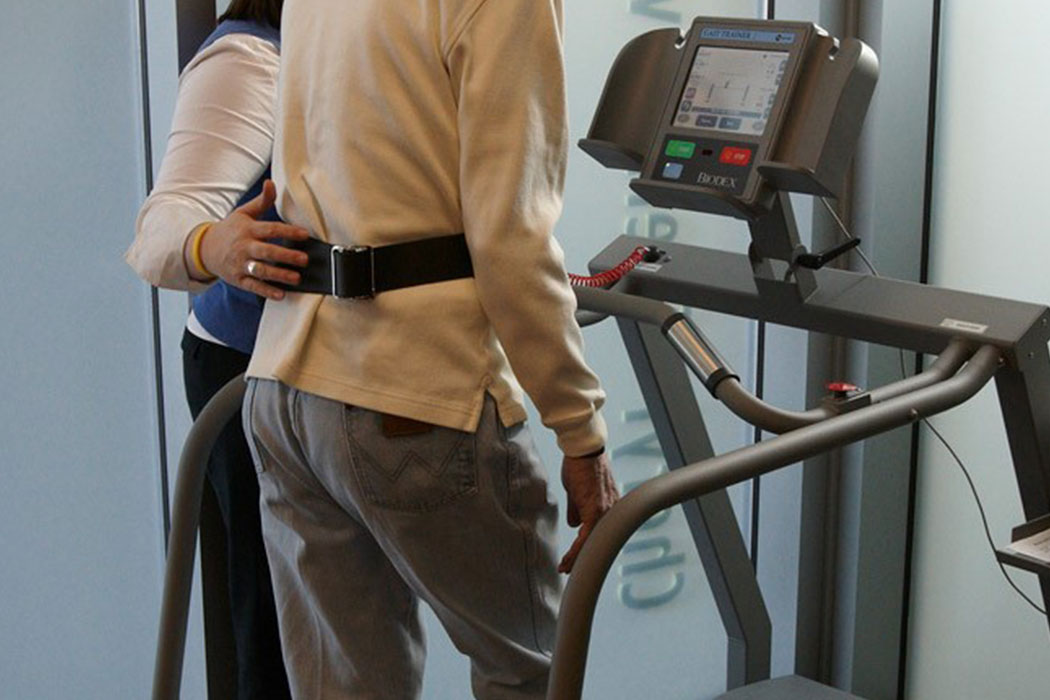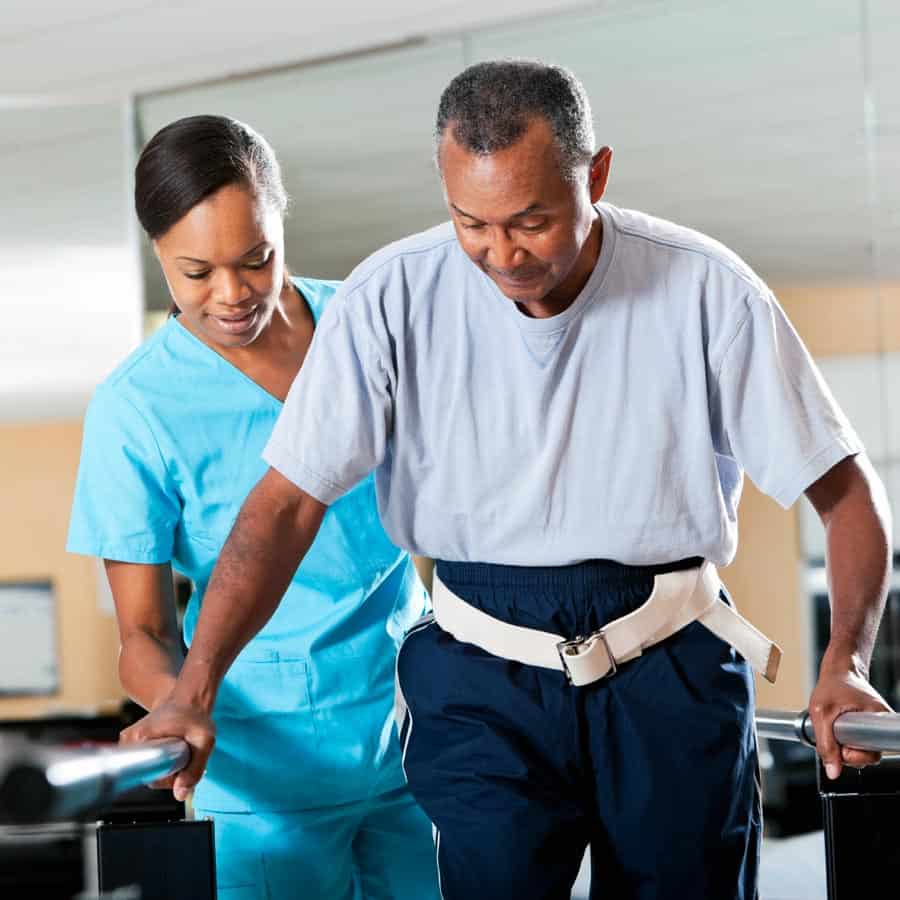What Is Gait Training?

Gait Training is a specialized form of physical therapy. It can help strengthen and improve a person's ability to stand and walk. It helps patients by strengthening their muscles and joints. It also aids in enhancing posture and balance to avoid stumbling or falling while walking.
This Therapy aims to build muscle memory, boost endurance, and eventually retrain the legs for repetitive motions. It was designed to help gain independence from adaptive devices and boost confidence in walking.
For Safe And Effective Physical Therapies and Treatments
CALL US AT (813) 392-2164
Who Can Benefit From Gait Training?
A doctor may recommend this training if a person lost their ability to walk due to an injury, illness, or other health condition. The following conditions can lead to difficulties with gait:
- Muscular Dystrophy
- Musculoskeletal Disorders
- Strokes or Neurological Disorders
- Spinal Cord Injuries
- Broken Legs or Pelvis
- Lower Limb Amputations
- Joint Injuries or Replacements
THE BENEFITS OF GAIT TRAINING
It can help a person regain their ability to walk and stand after losing them from an illness or injury. An adaptive device might help them do these motions. However, this therapy would give them a boost in their confidence and reduce their fatigue. It will also help in minimizing demands for long-term care, and eventually, reduce reliance on walking aids.
Through this physical training, a person can:
Through this physical training, a person can:
Normalize Their Gait Pattern
A normalized gait pattern means being able to walk symmetrically. Your walking pattern should lie within the “normal” range of stride width, stride length, and step length.
Optimize Standing, Walking and Running
This training includes exercises that strengthen muscles and joints, build endurance, and retrain the legs for repetitive actions. These exercises are designed to help you regain independence in standing, walking, and eventually running.
Reduce The Risk of Slip and Fall Injuries
Falling and slipping is a concern for people with physical challenges. However, this training aids in improving balance and posture. The exercises used in gait training will give the patient confidence in their footing, relieve the aches from poor posture, and boost independence. This greatly helps in making walking less of a struggle and minimizing the chance of falling or slipping.
Improve Balance and Stability
Balance has a huge influence on walking. Without it, it will be hard making the feet and legs work as they should. The activities of this training help strengthen weak leg muscles so that you'll be able to shift your weight on both sides and achieve consistent stability and balance.
Reduce the Risk of Various Diseases
Lack of activity causes a lot of problems like cardiovascular diseases and osteoporosis. However, in this training, you'll be exercising your bones, muscles, and joints. This will improve your lower-extremity strength and blood circulation. Since you're developing proper posture, your lung function, bladder function, and digestion also improve. The pains and aches will also be relieved since you'll be able to shift your weights.
Enhance Cognitive, Emotional and Social Wellbeing
Being able to confidently and independently walk upright again, will improve visual awareness, cognition, and circulation. All of these contribute to a better mental focus and acuity.
What To Expect
It is imperative that you start early to increase success. This therapy can often be paired with other forms of physical therapy.
This training can be a long process that requires a lot of work. Some people may have to work on their balance and strength for many months before they start the actual gait training.
Once you have regained the strength in your muscles, you can then focus on a more task-specific exercise. Though the exercise will depend on your capacity and the severity of your injury. The process can be challenging both physically and mentally. However, if you have the right mindset and you work hard, the benefits you reap will be life-changing.
This training can be a long process that requires a lot of work. Some people may have to work on their balance and strength for many months before they start the actual gait training.
Once you have regained the strength in your muscles, you can then focus on a more task-specific exercise. Though the exercise will depend on your capacity and the severity of your injury. The process can be challenging both physically and mentally. However, if you have the right mindset and you work hard, the benefits you reap will be life-changing.

before, During and after a successful process
You will have to undergo various tests before the therapist determines if this therapy is for you. They will assess your strength, ability to stand up, balance, sensation, spasticity, and range of motion on lower extremities. If you can take a few steps, the therapist will test your walking speed, balance, and endurance. You may use assistive devices to ensure safety as you walk.
Gait training exercises involve activities like walking on a treadmill, heel raises, lifting your legs, sitting down, standing up and stepping over objects. Although these exercises can be done at home, you still need the support given by a professional therapist. Without the proper assessments and "pre-gait" training, you might do some activities that may worsen your condition.
Gait training exercises involve activities like walking on a treadmill, heel raises, lifting your legs, sitting down, standing up and stepping over objects. Although these exercises can be done at home, you still need the support given by a professional therapist. Without the proper assessments and "pre-gait" training, you might do some activities that may worsen your condition.
For the gait training to be deemed successful, you should be able to:
Have stronger leg muscles that can support your body mass
Move your body towards the intended direction
Have a normalized walking pattern
Have balance and stability to support the body while standing and walking
Be able to adapt movement needed for different environments
